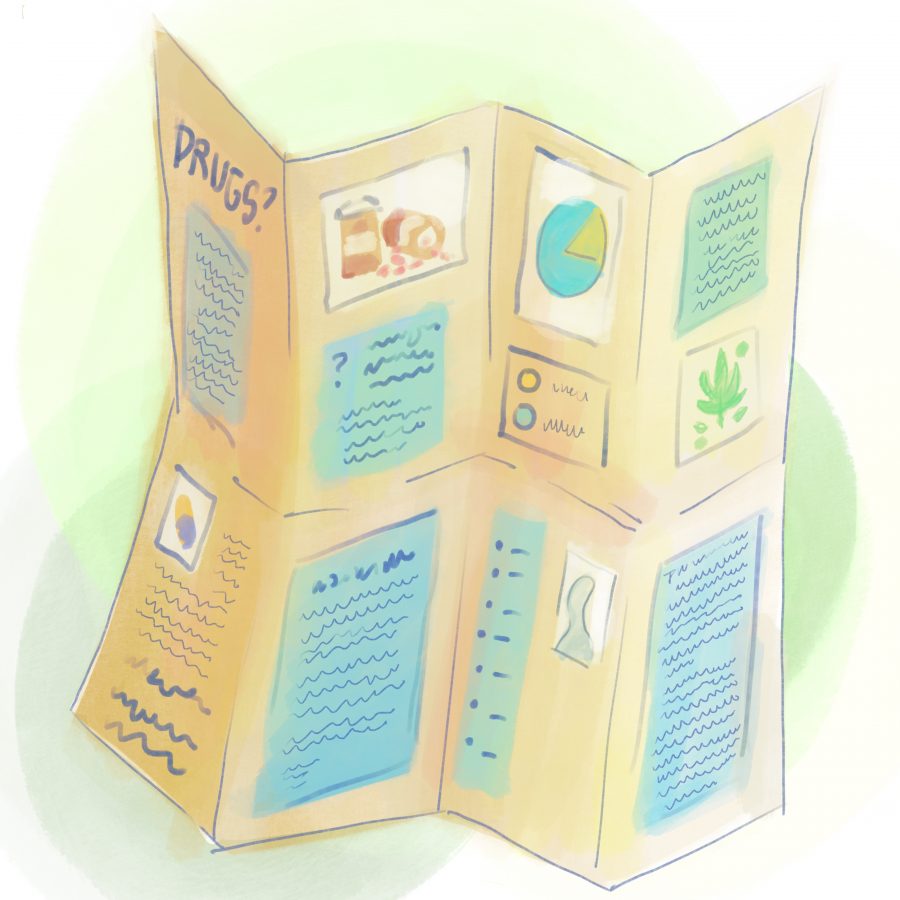Student safety was a central topic during my freshman orientation, but I was never informed that two UT students had died from drug overdose months before. As public health experts anticipate the opioid crisis to worsen in Texas, proactivity in sharing key resources and information is a necessity. Campus life is rife with parties and drugs, so UT students are not immune from this epidemic. The University must provide comprehensive drug education in order to improve wellness and save lives.
An ongoing survey of more than 400 UT students, conducted by UT Undergraduate Studies’ Young People and Drugs course, found that almost a quarter of students have consumed an illicit substance other than marijuana or alcohol in the past three months. But no widespread educational infrastructure exists to teach students about the potential effects of less-discussed illicit substances. This must change.
Education is key because an increasing number of street drug samples, including common college drugs such as Xanax and cocaine, are testing positive for fentanyl. Fentanyl is a deadly synthetic opioid, and consuming only two milligrams of it can be lethal. More than 75 percent of UT students expressed interest in learning how to test substances for purity, but less than 20 percent were aware of where they could purchase a fentanyl test strip.
“A lot of things that students learn about drugs they hear from their friends, and a lot of that information isn’t entirely accurate,” psychology freshman Cassie Youngblood said.
But hope and change is already on the horizon. Thanks to the hard work of student and faculty activists, many reforms dedicated to harm reduction and overdose prevention have been implemented on campus. Now, it’s a matter of spreading this information.
For example, naloxone, which immediately reverses an opioid overdose, is now available at the front desk of every residence hall on campus. Students also have been granted medical amnesty, so they can call for help in medical emergencies without worrying about formal University disciplinary action. Recovery resources, such as UT’s Center for Students in Recovery and Austin’s first recovery high school, also exist on campus but remain underreported.
Future efforts could bring drug education to freshmen living communities: “Let’s Taco ‘Bout Drugs” was an event hosted by Students for Sensible Drug Policy at Whitis Court, which provided first-year students with naloxone training, safe party tips and information on study drugs and harmful drug combinations.
Large-scale projects could mimic already existing infrastructure, such as “AlcoholEdu” — the online course about alcohol that new UT students are required to take. The course outlines dosing guides and signs of overdose.
Online education is not the only avenue of change: Dr. Holleran Steiker, UT social work professor and harm reduction activist, has advocated for wellness centers on campus which would establish “safe and comfortable places for students to connect, learn more and ask questions” about coping mechanisms and risk reduction. These centers could raise awareness, lower stigma and shift the culture of our campus, according to Steiker.
The possibilities of comprehensive drug education are endless. If UT wishes to maintain its status as a champion of overdose prevention, administration must listen and adjust accordingly.
Sims is an international relations and global studies sophomore from Houston.





















